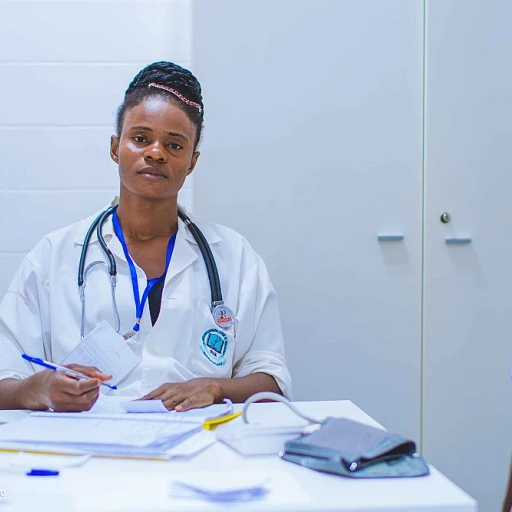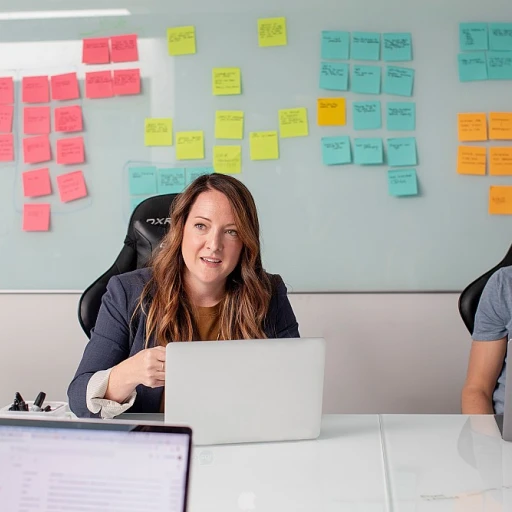
Understanding the Importance of Candidate Experience
The Increasing Relevance of Candidate Experience
In the rapidly evolving job market, candidate experience has emerged as a pivotal factor influencing recruitment outcomes. By focusing on candidate experience, employers not only enhance their organizational reputation but also improve the overall recruitment process. Understanding the significance of this concept is crucial for any company looking to attract top talent and maintain a competitive edge. Several key factors contribute to the growing importance of candidate experience. Job seekers today are more informed and discerning than ever, often evaluating potential employers based on their recruitment journey. A well-managed candidate experience can significantly boost a company's brand image, helping to secure ideal candidates who align with the company's values and goals. Additionally, companies investing in candidate experience tend to enjoy higher engagement and loyalty from their future employees. Effective candidate experience can impact various aspects of a candidate's professional journey. From developing communication skills to enhancing problem-solving abilities, the recruitment process serves as a foundational step in a candidate’s career development. It offers insights into the company’s culture, including time management, project management, and leadership expectations. Candidates perceive a seamless candidate experience as a reflection of the company’s dedication to quality and professionalism. Improving candidate experience is not merely about refining communication; it also involves identifying areas for enhancement, setting clear development goals, and implementing changes across recruitment practices. Whether it's honing decision-making skills or better aligning performance goals, companies can benefit from understanding and optimizing the candidate journey. For a comprehensive perspective on this subject, you can explore further insights on optimizing candidate experience.Identifying Key Areas for Improvement
Pinpointing Opportunities for Growth
Recognizing areas in need of improvement is essential to fostering a more seamless and positive candidate experience. Employers should begin by evaluating their existing recruitment process to identify potential gaps or inefficiencies. This evaluation helps in pinpointing opportunities where specific development goals can be set to enhance the overall performance and satisfaction of candidates. Consider the following elements as primary areas deserving attention:- Communication Skills: Clear and timely communication can greatly improve the candidate's journey. Identify whether your communication strategy might benefit from aspects such as improved timelines, professional tone, or more informative exchanges.
- Project Management: Effective management of recruitment projects ensures a smooth workflow and timely progress. Assess if your team needs additional training or tools to streamline these processes.
- Technical Skills: Evaluate the technical competence of both HR staff and the tools they utilize. Enhancing technical skills can lead to a more efficient process and better candidate interaction.
- Decision Making: Empower recruiters with the skills and confidence to make effective decisions during the hiring process. Clear criteria and goal setting aid in preventing delays and indecision.
Setting Clear Development Goals
How to Set Clear Objectives for Professional Development
Crafting clear development goals that enhance the candidate experience involves a nuanced understanding of the recruitment process. It is crucial to align these goals with the broader organizational objectives. Doing so not only improves recruitment outcomes but also contributes to the professional development of employees. Defining precise goals is an essential step toward fostering growth. Consider the following aspects:- Identify Key Skills: Focus on the skills that candidates need to thrive in their roles, such as communication, leadership, and problem-solving. Skills development can greatly enhance both personal and professional growth.
- Align with Long-Term Objectives: Establish goals that support the overarching mission and vision of your organization. By aligning short-term tasks with long-term career aspirations, you facilitate meaningful progress.
- Balance Professional and Personal Growth: Ensure that goals encompass both professional development and personal improvement to foster a holistic experience. Encourage candidates to work on time management and project management as part of their personal development journey.
- Incorporate Feedback Mechanisms: Develop platforms for ongoing feedback to refine goals and adapt them as needed. This approach enables continuous improvement and adaptation within the recruitment practices.
Implementing Changes in Recruitment Practices
Strategic Changes in Recruitment Practices
Effectively implementing changes in recruitment practices requires a strategic approach aimed at aligning with the established development goals. This not only enhances the candidate experience but also improves the overall recruitment process. Here, we delve into the practical steps that can be taken to refine recruitment strategies, making them more candidate-centric.
- Evaluate Current Processes: Start by assessing your existing recruitment practices to identify areas that need improvement. This can include reviewing communication channels, job descriptions, and application processes. This assessment helps in pinpointing inefficiencies and areas for growth.
- Leverage Technology: Implementing advanced recruitment technologies can streamline the hiring process. Consider applicant tracking systems and AI-driven tools for screening candidates. This makes the recruitment process smoother and more efficient.
- Enhance Communication: Effective communication is vital in maintaining a positive candidate experience. Establishing clear communication about role expectations, interview processes, and timelines ensures candidates feel informed and valued. Enhancing your communication skills within your team can lead to improved candidate satisfaction.
- Provide Training: Train employees involved in recruitment on techniques and approaches that bolster candidate experience. Professional development in areas such as public speaking, customer service, and emotional intelligence can lead to better candidate interactions.
- Refine Job Descriptions: Ensure that job descriptions are clear, concise, and accurately reflect the role and its responsibilities. Engaging in personal development for creativity and clarity in writing can improve this aspect significantly.
- Foster a Collaborative Environment: Encourage teamwork and collaborative decision-making among recruiting staff. This can help in identifying collective strategies that align with the broad goals of recruitment and candidate experience enhancement.
- Set Time Management Goals: Implement time management strategies to ensure that recruitment processes are efficient and candidates are engaged promptly. Long-term efficiency improvements can lead to a more agile recruitment process.
By addressing these key areas, you not only work towards enhancing your recruitment practices but also contribute to a more positive candidate experience, paving the way for better alignment with organizational goals."
}
Measuring Success and Gathering Feedback
Evaluating Achievement and Soliciting Input
To fully realize the effectiveness of your development goals in enhancing candidate experience, it's crucial to establish a robust measurement framework. This involves both quantifying outcomes and actively seeking qualitative feedback. When considering performance goals, define specific metrics that align with the broader objectives you've set. This can include key performance indicators such as the time-to-hire, candidate satisfaction scores, or recruitment process efficiencies. These metrics provide tangible, short-term insights into your recruitment strategy's success. However, metrics alone don't tell the full story. Engaging candidates and employees alike in open conversations can greatly enhance understanding. Inviting feedback through surveys or personal interviews allows for a direct assessment of how well the process serves its stakeholders. Such interactions help improve communication skills among the team, fostering a culture of continuous improvement. Keep in mind the balance between soliciting feedback and implementing actionable changes. The feedback loop should be designed as a constructive platform, encouraging honest and helpful responses. Learn from every interaction to help refine existing approaches and foster long-term growth. Additionally, sharing insights and progress internally aids in aligning team efforts toward a unified goal. Open channels of communication enhance team cohesion and leadership effectiveness by ensuring everyone is working towards shared objectives. In summary, measuring success and gathering feedback are crucial components of improving candidate experiences. These efforts feed into a cycle of professional development, leading to a more adaptive and responsive recruitment framework that consistently meets the needs of both candidates and the organization.Continuous Improvement and Adaptation
Embracing an Ongoing Journey of Enhancement
The journey to improving candidate experience doesn't stop after implementing initial changes. It requires ongoing commitment to professional growth, fine-tuning of skills, and nurturing a culture that prioritizes development goals. To achieve this, your organization should adopt an agile mindset that embraces continual learning and adaptation. First, it's essential to regularly revisit the development goals set for enhancing candidate experiences. This helps ensure alignment with evolving organizational objectives and market dynamics. Incorporating feedback from applicants and employees provides invaluable insights into areas where further improvements can be made, fostering a more open and communicative environment. Establishing a routine for tracking performance and professional advancement is crucial. This process can involve:- Regularly scheduled reviews that assess the effectiveness of implemented strategies.
- Meetings with recruitment teams to discuss and refine communication skills, leadership qualities, and project management techniques.
- Encouraging team members to engage in personal development activities and training sessions, enhancing both short- and long-term skills.












